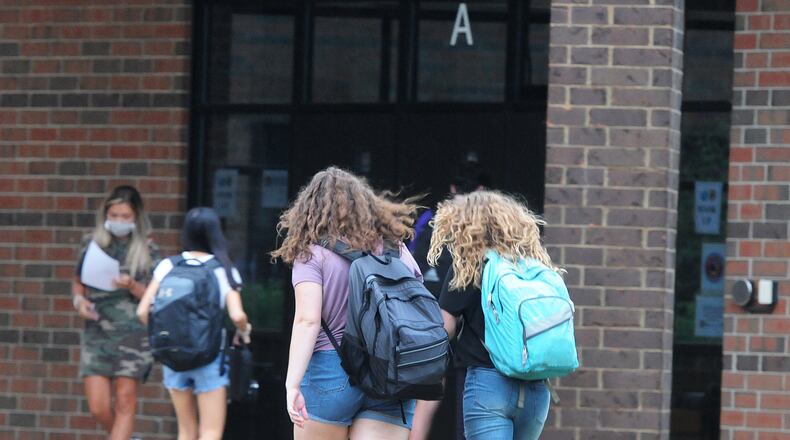When absentee ballots were posted at 7:40 p.m., “no” votes had slightly outnumbered “yes” votes, but they gradually flipped as election-day ballots (which made up the majority of totals) came in.
The new levy is a 7-year, 4.9-mill property tax levy, which will raise $3.22 million a year and cost the owner of a $100,000 home an additional $171.50 annually.
The school board had agreed In March that if the levy passed, previous cuts would be reversed in three areas. Two librarians would be hired so that all school libraries would once again be open every day. STEM classes for students in kindergarten through fifth grade would be reinstated by hiring one teacher for that role. And the return of 31 small supplemental contracts (often a few thousand dollars each) would bring back advisors so that certain canceled clubs and activities (like a spring play or sports team) can resume.
Other than that, district operations will stay the same, with the additional funding intended to prevent the schools from running out of money. Bellbrook’s five-year financial forecast had projected that to happen in the 2023-24 school year.
If the levy had been rejected, the district had planned to leave 2-3 teaching positions unfilled this summer, then likely put another levy on the ballot in November.
The district has touted $4.8 million in budget cuts, but the forecast shows those cuts have been offset by increases in other areas, with district general fund spending staying flat at $29.8 million in 2018-19, 2019-20 and this year. Revenues have been lower, averaging $29.1 million in those three years.
Superintendent Doug Cozad has said the financial need for a levy has not gone away, so the school district agreed to present the question to voters a fourth time. Local resident John Stafford, who has led a vocal “Vote No” movement, said the school district should have listened its residents’ voice in the first three votes.
This campaign, like the previous ones, has been contentious, with name-calling on both sides.
Stafford won a court ruling last year that the district violated open meetings law, and another of his complaints has triggered a state auditor’s investigation into school campaign spending.
School board officials have pointed out that Stafford repeatedly misrepresented the state’s 2020 performance audit findings about Bellbrook schools, and used false information in social media posts about the levy.
Cozad said this spring that if the levy passed, he would generally be comfortable with the education and services the district can provide in the coming years, pending news on the state legislature’s new K-12 school funding plan.
About the Author

